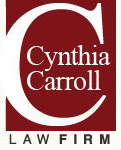We have helped many struggling homeowners eliminate 2nd mortgages on their homes, reduce 1st mortgages on rental properties, and avoid foreclosure using a little known provision of the Bankruptcy Code.
The Bankruptcy laws prevent homeowners from eliminating a first mortgage on their personal residence that is secured solely by that property. However, second mortgages are treated differently. Second mortgages may be declared as unsecured debt and discharged when there is insufficient equity to support it. This situation, being “upside-down” on the home’s value as compared to liens, is the unfortunate case for millions of homeowners whose homes are worth far less now than a few years ago, due to the housing market crash.
What happens in a Chapter 13 bankruptcy proceeding? If the payoff on the first mortgage exceeds the property’s appraised value, the Bankruptcy Court may be petitioned to avoid, or set aside, the second mortgage. If that petition is granted, the second mortgage is put on hold and no payments are required while the homeowner completes a Chapter 13 payment plan for other debts- – which typically takes three to five years. At that point, the second mortgage is eliminated. Under this scenario, the second mortgage is deemed unsecured, and thus it may be avoided, or “stripped off”, in a Chapter 13 bankruptcy. Lien stripping may be used to avoid or modify junior mortgages, judgment liens, and in some cases, tax liens, which are unsecured in whole or in part when the liens exceed the value of the debtor’s property. This would also work well, in conjunction with using Chapter 13 to resolve mortgage arrears on 1st mortgages that would otherwise lead to foreclosure.
If you have recently received a Chapter 7 discharge, you may still be eligible now to file a Chapter 13, in good faith, to take advantage of junior mortgage/lien stripping.
How would your family benefit from entirely eliminating the second mortgage on your home? Imagine making affordable monthly payments for three to five years and emerging with no second mortgage to pay – – lowering total monthly housing payments, and owing an asset that is actually worth something. Would you be better off than you were before filing bankruptcy?
Section 506 of the Bankruptcy Code provides that a lien is only secured to the extent that there is value in the asset supporting said lien; and to the extent that the claim exceeds the value of the collateral, that portion of the claim is deemed unsecured.
A junior lien or mortgage on a personal residence may be “stripped off” in a Chapter 13 Bankruptcy, but not a first mortgage secured only by the debtor’s personal residence. However, if the real estate in question is rental or commercial property that is worth less than the mortgage balance, a Chapter 13 bankruptcy can reduce (or “cram down”) the principal balance and interest rate on a 1st mortgage for rental or commercial property. These options are beneficial for people who have suffered from having their property values slashed in the current Delaware real estate market.
Delaware residents: feel free to call Bankruptcy Attorney Cynthia L. Carroll today for a free initial consultation to discuss these options, at (302) 733-0411.
